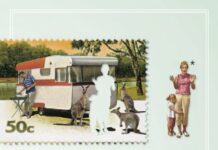
Ebook Info
- Published: 2011
- Number of pages: 240 pages
- Format: PDF
- File Size: 5.04 MB
- Authors: Jeff Gerke
Description
Seeking writing success? Start at the beginning…Whether you’re looking to get published or just hoping to hook your reader, first impressions are vital. Compelling opening scenes are the key to catching an agent or editor’s attention, and are crucial for keeping your reader engaged.As a writer, what you do in your opening pages, and how you do it, is a matter that cannot be left to chance. The First 50 Pages is here to help you craft a strong beginning right from the start. You’ll learn how to: • introduce your main character • establish your story world • set up the plot’s conflict • begin your hero’s inner journey • write an amazing opening line and terrific first page • and moreThis helpful guide walks you through the tasks your first 50 pages must accomplish in order to avoid leaving readers disoriented, frustrated, or bored. Don’t let your reader put your book down before ever seeing its beauty. Let The First 50 Pages show you how to begin your novel with the skill and intentionality that will land you a book deal, and keep readers’ eyes glued to the page.
User’s Reviews
Editorial Reviews: About the Author Jeff Gerke (www.marcherlordpress.com and www.wherethemapends.com) is an author of fiction and nonfiction including such books as the Operation: Firebrand novels. He has worked as an editor for numerous publications and is the founder of Marcher Lord Press, an indie publishing company dedicated to producing the finest in Christian science-fiction, fantasy, and other genres. He is also the author of Plot Versus Character, also from Writer’s Digest Books. He lives in Colorado Springs, Colorado.
Reviews from Amazon users which were colected at the time this book was published on the website:
⭐I’ve self published 7 books and have been toying with the idea of getting an MFA in creative writing. But before I commit, I’ve been reading some books on writing. The first one claimed to be some kind of editing Bible and had a word missing in one of the sentences in the first paragraph. This made me nervous, since it had high reviews. The First 50 Pages is the second book I’ve ever read on the craft of writing. I’m only a third in, but I want to write a review already, because I’m loving this book so much. There are many great tips and I feel like I’m learning something.I’m about to put out another novel and I have a feeling it’s going to be delayed due to wanting to apply what I’m learning in this book. It’s going to be self published also, but Ive already decided I’d like to attempt traditional publishing for my next one after that.
⭐Gerke’s The First 50 Pages is a valuable tool for outlining your novel, getting started, and editing. The First 50 Pages is not another one of those craft books that opines about writing philosophy or says that writing is art so there are no rules. Throughout the book, Gerke presents options (using a prologue, for example, or starting with hero action instead), and then tells you when an option can work and when it probably won’t, so you can make the right choice for your genre and style of writing.Some of the useful topics he covers include:-The first impression of your protagonist.-Matching your setting with your genre.-When to use a framing device, and when not to.-Exploring possible scenes to show your protagonist’s character.-First lines.-Pacing.-Story structure within the first 50 pages.-Point of view.Gerke explains a topic then gives an example from a book or the big screen. His examples are popular works (who hasn’t seen a James Bond movie?), so his examples are easy to grasp and add to the reader’s understanding.The only reason I gave The First 50 Pages four stars instead of five was that Gerke got a little repetitive. The same information could have been conveyed in less pages. But overall, The First 50 Pages is full of useful information, and I know I’ll be referring to it again and again.
⭐So this is a book that focuses on the beginning of your novel. I don’t have any hard evidence, but it does seem like that’s a keystone in getting published. I’ve never heard of slushkillers starting at a random point in the manuscript for the yay-or-nay vote.I’d say this is a useful book. The amount read per item of information learned ratio wasn’t great–lots of writing books talk about beginnings at length–but there are some key things to know. And as usual, grains of salt are recommended as a side dish. Because if you do come up with something that ticks all the boxes of a good first 13,000 words, it’s going to be… pretty boring, I imagine. I’m rather fortunate in that I usually know how a book should begin. Whether that’s the way editors/agents want it, whether it’s the best way or most attractive way, not so sure.It’s not a slog to read at least. It’s enjoyable and not too long. There is padding, like “why you should want the beginning to be great” and “the do nots of beginnings” that don’t help you to actually do. If you condensed it to the actual helpful content, it would be as big as a pamphlet. Of course, that’s true of any book. So yeah, I’d say writers should pick this up. I don’t know if it’ll increase your chances of being published, but it couldn’t hurt.
⭐Jeff Gerke’s The First 50 Pages is a terrific addition to a writer’s library. Addressing the merits of this book, Donald Maas, Literary agent and author of The Breakout Novel writes: “From the insider’s perspective, everything they’re not telling you about your first pages. Invaluable.”Gerke’s Establish Your Hero’s Normal and Establish Your Story’s World Normal, helped me understand my characters’ behavior.I also loved looking at the submission process, peering inside an editor’s head.The section on clichés didn’t appeal to me. Why? With few exceptions, I know them all. This shouldn’t stop anyone from buying AND reading this book.Jeff Gerke’s The First 50 Pages, and Donald Mass’ The Breakout Novel, two books what will make you a better writer.
⭐This was my first book of Jeff’s that I consumed. I have since moved on to several of his other craft books as they all greet you at the door, take your coat, and offer you a hot cuppa tea. Jeff’s writing style truly gets into your head and you get it. Never before could anyone explain to me the real difference between showing vs telling. Now I know, and it makes total sense. I changed up my entire prologue based on this one aspect of the book. This is a MUST READ book before you start every new project because it is packed with brilliance (common sense)! This book has found a forever home and will be one of those that they have to pry from my cold, dead hands. Thanks Jeff!
⭐I really got a lot out of this book as I just finished my first novel. Now, I can view things with a different perspective.
⭐This book explains what many of us need to know who have not managed to take advanced writing classes, like Point of View issues, and other classic errors that writers can make that will keep their readers from getting through those first 50 pages. I am a strong writer, but I’m glad I had this review. He covers enough issues that he caught a couple of mine. I’m glad for that: I’m in process of re-writing / editing making use of what he showed me. Thanks!
⭐This book was so helpful that I took editing notes constantly until I had to stop- there were just too many of them to keep organized! Reviewing this book may have to be a permanent part of my editing process. Jeff Gerke explains in an engaging and straightforward manner how publishing houses work, what they are looking for, and how exactly they can peg you as a novice after reading only one page of your work. A must have for any fiction writer!
⭐This book helped me write a tight, suspenseful opening to a non-fiction memoir of a very complicated life. I learned what to include and leave out in the beginning. It covered dialogue, characters and plot.
⭐I am hardball when critizing books, but this was well written and entertaining at times. Some of the information seemed obvious and redundant to me, but had some important points.
⭐What a great book. Learned a lot and I think I am ready to edit now my novel and focus of course on my first 50 pages
⭐More than the first fifty pages, this will help with the whole process of writing.
Keywords
Free Download The First 50 Pages: Engage Agents, Editors and Readers, and Set Your Novel Up For Success in PDF format
The First 50 Pages: Engage Agents, Editors and Readers, and Set Your Novel Up For Success PDF Free Download
Download The First 50 Pages: Engage Agents, Editors and Readers, and Set Your Novel Up For Success 2011 PDF Free
The First 50 Pages: Engage Agents, Editors and Readers, and Set Your Novel Up For Success 2011 PDF Free Download
Download The First 50 Pages: Engage Agents, Editors and Readers, and Set Your Novel Up For Success PDF
Free Download Ebook The First 50 Pages: Engage Agents, Editors and Readers, and Set Your Novel Up For Success

